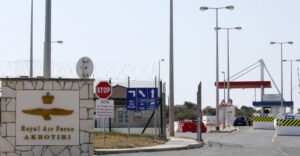German discounting supermarkets Lidl are celebrating a major victory: the Frankfurt Court of Appeal has ruled that they can continue sales of “Dubai chocolate“.
This is despite the fact that this chocolate is not produced in Dubai and is even marketed as a private label product of the well-known chain.
Lidl was taken to court by a German food wholesaler, as he himself imports branded “Dubai chocolate” from Fex that is actually made in Dubai.
The plaintiff claims that Lidl-type products mislead the consumer by creating the false impression that he is buying chocolate that has been manufactured in Dubai.
However, the Court of Appeal in Frankfurt does not share his argument.
According to the German news agency, the judges believe that “Dubai chocolate” is understood as a general concept with no specific link to the place where it is produced.
Consequently, they say, there is no question of misleading the consumer when, in fact, the packaging of the product in question expressly states that its ingredients come from “countries within and outside the EU.
Judicial defeat for Aldi
Remarkably, the same trader had been vindicated in another, similar action at the Cologne District Court. The suit was against the Aldi supermarkets, which stocked Dubai chocolates from Turkey on their shelves. In this case, the judges found that there was indeed a risk of consumer misleading and even granted injunctions against Aldi supermarkets. Or were the two cases not so similar?
Or were the two cases not so similar?
According to the website Tagesschau.de of Germany’s leading TV channel (ARD) the two cases are indeed different, a point made by the Frankfurt Court of Appeal. For example, Lidl’s “Dubai chocolate” clearly appears as a “private label” and leaves no hint that it may come from Dubai, which is not true to the same extent for Aldi’s packaging.
Turnover in the hundreds of millions
The truth is of course that “Dubai chocolate” had first appeared in Dubai. A chocolatier, Sara Hamunda, invented the recipe during her pregnancy in early 2024, and introduced for the first time a delicacy with chocolate couverture, Aegina peanut cream and crispy cantaloupe leaf. The recipe was shared around the world via TikTok. However, it has not been commercially registered, as indeed the United Arab Emirates is not a signatory to the Geneva Act of the Lisbon Agreement on Appellations of Origin and Geographical Indications.
The question therefore arises as to whether there is a patent and legal protection for “Dubai Chocolate“. It is no coincidence that the issue is now before the courts. The turnover promised even today by the “most viral treat for 2024” is enormous.
Market experts estimate that within six months the “Dubai Chocolate” has made $500 million in sales worldwide. And that figure doesn’t even include Christmas sales.
Ask me anything
Explore related questions





